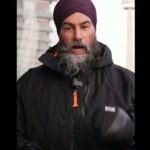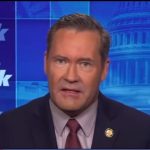The announcement came after a day of confusion over whether the European Medicines Agency (EMA) had found a link between the vaccine and the clots, which have been associated with the deaths of seven vaccinated people in Britain.“While there are no safety concerns in the paediatric clinical trial, we await additional information from the MHRA (UK regulator) on its review of rare cases of thrombosis/thrombocytopaenia that have been reported in adults, before giving any further vaccinations in the trial,” the authors of the trial said in a statement. Meanwhile, Europe’s drug regulator has denied it has already established a link between the AstraZeneca vaccine and a rare blood clotting syndrome, after a senior official from the agency said there was a connection.The European Medicines Agency (EMA) said it had “not yet reached a conclusion and the review is currently ongoing”, adding that it expected to announce its findings on Wednesday or Thursday.But Marco Cavaleri, the EMA’s head of vaccines, had earlier told Italy’s Il Messaggero newspaper: “We can say it now, it is clear there is a link with the vaccine … But we still do not know what causes this reaction”. After several countries suspended the use of the AstraZeneca jab, the EMA said on March 18 that the benefits of using it outweigh the risks and it should remain in use.But it has said there is a possible link to rare blood clots and that it would issue updated advice during this week’s meeting of its safety committee.The World Health Organisation said the AstraZeneca vaccine is “still largely positive”.“There’s no evidence that the benefit-risk assessment for the vaccine needs to be changed,” Rogerio Pinto de Sa Gaspar, the WHO’s director for regulation and pre-qualification, said.Most countries have resumed AstraZeneca inoculations but some, including France, Germany, Italy, France, Spain, the Netherlands and Canada, have suspended its administration in people aged under 55, 60 or 65.The EMA is looking into 14 deaths among recipients of the jab that had been reported by 22 March and are related to unusual blood clots in the brain, known as cerebral venous sinus thrombosis (CVST), accompanied by a low platelet count. A high proportion among the reported cases affected were young and middle-aged women.“We are trying to get a precise picture of what is happening, to define in detail this syndrome due to the vaccine,” Mr Cavaleri told the paper. “Among the vaccinated, there are more cases of cerebral thrombosis … among young people than we would expect.”Professor Neil Ferguson from London’s Imperial College told the BBC earlier this week that the clots raised questions over whether young people should get the vaccine.“There is increasing evidence that there is a rare risk associated particularly with the AstraZeneca vaccine – but it may be associated at a lower level with other vaccines – of these unusual blood clots with low platelet counts,” Professor Ferguson said.“It appears that risk is age-related, it may possibly be – but the data is weaker on this – related to sex.”Prof Paul Hunter, a medical microbiologist at the University of East Anglia, told the BBC the “chances of a random association are very, very low”.AstraZeneca ALL US ADULTS ELIGIBLE FOR VACCINE BY APRIL 19President Joe Biden will announce Tuesday that all adults across the United States will be eligible for COVID-19 vaccines by April 19 — well ahead of the already ambitious previous target.The White House said Mr Biden is shifting the deadline for full eligibility from May 1 to April 19 after rapid progress in all 50 states in the vaccine rollouts.A senior administration official, who did not want to be identified, said the announcement would be made by the president later on Tuesday (local time).If the target is met, this would mean an end to restrictions by age, health issues or other categories for people wanting to get coronavirus vaccines. It would not necessarily mean that anyone could get a shot immediately, as distribution remains a work in progress.Biden was scheduled to visit a vaccination site in Virginia, just outside of Washington, on Tuesday, before delivering remarks on the topic at the White House.The Democrat immediately put mass vaccinations at the centre of his agenda after taking office in a bid to quickly halt the pandemic and launch the US economy into a powerful comeback.An initial goal of administering one million vaccine doses every day has long been surpassed and on Monday senior White House pandemic adviser Andy Slavitt said the United States is “now averaging 3.1 million shots per day over the most recent seven-day period.” “Over the weekend, there were more than 4 million recorded vaccinations in a single day for the first time,” he said.CNN and NBC reported that Mr Biden will announce on Tuesday (local time) that the United States has hit the milestone of 150 million shots in arms in the first 75 days of his administration. The original goal had been to get to 100 million within the first 100 days but that has now been moved to 200 million, a figure also likely to be topped.CONCERNS OVER NEW SURGECountering the stream of good news from the White House is a steady rise in COVID-19 infections, as people let down their guard, following more than a year of mask-wearing, social distancing and restrictions on businesses and entertainment.Rochelle Walensky, head of the Centres for Disease Control and Prevention, warned that youths are leading the resurgence.“We are seeing this occur predominantly in younger adults,” Ms Walensky said. “Many of these, as I noted, are related to extra-curricular activities and youth sports.” Almost 556,000 Americans have died from COVID-19, by the far the highest toll reported in any country. On Monday, the Johns Hopkins University tracker reported 79,075 new confirmed cases and 607 deaths.UK TO OPEN PUBS, PM URGES TRAVEL ‘CAUTION’British Prime Minister Boris Johnson has confirmed pubs and restaurants could reopen to serve outdoors in a week’s time, as COVID restrictions are lifted, but sounded a note of caution on international travel resuming.Speaking at a televised press conference, Mr Johnson said criteria for moving forward with a second phase of easing coronavirus restrictions in England had been met.From April 12, non-essential retail, gyms, hairdressers and outdoor hospitality will reopen in England, Mr Johnson confirmed.“I will be going to the pub myself and cautiously but irreversibly raising a pint of beer to my lips,” joked the British PM, who emphasised caution when he first unveiled the plans in February.“We think that these changes are fully justified by the data,” Mr Johnson added, while warning against “complacency”.However, Mr Johnson gave little information on the resumption of non-essential international travel from Britain despite massive pent-up demand for overseas holidays.Mr Johnson said he was “hopeful” but would not commit to a tentative May 17 deadline to restart trips, saying Britain should not “underestimate the difficulties that we’re seeing in some of the destination countries”.The government’s Global Travel Task Force is to announce more detail on the UK’s travel road map this week, after the UK unveiled a “traffic-light” system for testing or quarantine after travel to different nations over the weekend.Currently people arriving in the UK from abroad are required to self-isolate for 10 days.British nationals who arrive from a banned “Red List” of high-risk countries face costly quarantine in government-approved hotels.The government urged people not to book summer holidays, saying it was “too early to predict” which would be the green-lit countries.Britain’s health regulator is also considering a proposal to restrict the use of the Oxford-AstraZeneca vaccine in younger people following concerns it triggers very rare blood clots, especially among young women.The news was broken by Channel 4, which reported: “Two senior sources have told this program that while the data is still unclear, there are growing arguments to justify offering younger people, below the age of 30 at the very least, a different vaccine.”Previously the UK regulator had insisted the benefits of the vaccine far outweighed any possible risk of blood clots.The regulator has not responded to the Channel 4 report.London has also announced it will allow a number of people to attend public events such as football matches from this month in trials of a virus certification system.But Mr Johnson refused to be drawn on whether Britain will issue “virus passports” for all international travel or as a blanket tool for attending events or accessing services, an idea backed by many tourism-dependent countries and airlines but opposed by more than 70 UK MPs.Mr Johnson said there was “absolutely no question” of people being asked to provide COVID certification to go to shops or restaurants in seven days, but left the door open to vaccination passes being used for travel in future.Passes were “something that all countries are looking at” and “I do think that’s going to be part of the way people deal with it” Mr Johnson said.The UK has already given out more than 31 million first vaccine doses and over five million second doses, a pace that has far outstripped popular holiday destinations such as France.This has boosted the public mood after more than 126,000 people died from the virus in the United Kingdom, the highest toll in Europe.On Monday (local time) in Scotland, where the devolved government in Edinburgh has set its own coronavirus restrictions, hairdressers and some non-essential retail were allowed to reopen for the first time in four months.In Glasgow, salon owner Anne Ferguson told reporters it was “fantastic” to return to work, adding that she was flooded with appointments.“Getting into the space and making it come alive again. That’s just a huge, huge thing. It’s just been very strange,” she said.From Thursday, those living in England will be able to access two free rapid virus tests per week, a measure aimed at curbing symptom-free virus spread.This will make such tests far more accessible than currently. “More cases will be detected, breaking chains of transmission and saving lives,” the government said on Monday.Vaccines WorldFRENCH INQUIRY OVER ‘CLANDESTINE’ COVID DINNERSA report by a French television channel alleging “clandestine” luxury dinners in Paris despite the pandemic has sparked an investigation and public furore over claims the nation’s political elite were brazenly ignoring rules they themselves had set.The M6 private channel broadcast a reportage based on footage recorded with a hidden camera purportedly from a clandestine restaurant in a high-end area of Paris where neither the staff nor the diners were wearing masks.All restaurants and cafes have been closed in France for eating in for the last five months. The country this week began a new limited nationwide lockdown to deal with surging COVID-19 infections.The hashtag #OnVeutLesNoms (We Want the Names) went viral on Twitter, as speculation swirled over who may have attended such dinners.Paris prosecutor Remy Heitz said that a criminal probe had been opened into putting the lives of others at risk.The investigation would assess “if these evenings were organised in defiance of health rules and to determine who were the possible organisers and participants.” The report showed staff at the venue proposing an evening menu from 160 euros ($A247) per head but said that the most expensive option went for 490 euros ($A756), including a bottle of champagne.Removing the face mask was not just possible but obligatory, it said. “We don’t wear a mask here. Once you pass through the doors, COVID no longer exists. We want people to feel at ease,” a staff member told the undercover team.NED-3328-COVID-19-vaccines-Options-and-how-they-workINDIA’S INFECTIONS HIT NEW RECORDIndia’s worst-hit state ramped up its coronavirus restrictions as nationwide the daily infections exceeded 100,000 for the first time on Monday.The United States is the only nation that has regularly registered so many cases in one day. Brazil recorded triple digits once in March.In India, hopes at the start of the year that the outbreak may be subsiding in the vast nation of 1.3 billion people have been dashed in recent weeks as a fresh wave pushed the national total to 12.5 million infections and 165,000 deaths.Maharashtra, the worst-hit state and home to India’s financial and entertainment capital Mumbai, recorded nearly 60,000 cases in the last 24 hours.Struggling state authorities on Sunday tightened the evening curfew to allow only people involved in essential services out of their homes from 8:00pm to 7:00am.The region of 110 million people will also see weekend lockdowns, with gatherings of over four people banned and places of worship and restaurants shut.In Mumbai over the weekend, one of Bollywood’s biggest stars, Akshay Kumar, became the latest celebrity to test positive.On Monday, shooting of the religious epic Ram Setu that Kumar was making was halted after 45 crew members also tested positive.“How long shooting remains halted depends on Akshay Kumar’s recovery. We can replace all our crew members, but we cannot replace the star of the film,” Ashok Dubey from the Federation of Western India Cine Employees told reporters.Kumar, 53, tweeted meanwhile that he had been hospitalised “as a precautionary measure under medical advice”.India has so far administered almost 80 million vaccine shots. Last week, it opened up vaccinations to all those over 45 years old to speed up its flagging national inoculation drive.India is using two shots for its drive, a locally produced version of the Oxford-AstraZeneca vaccine, and Covaxin, which was developed by domestic firm Bharat Biotech.On Monday, New Delhi-based Panacea Biotec said it had reached an agreement with the backer of the Sputnik V coronavirus vaccine, the Russian Direct Investment Fund, to produce 100 million doses in India each year.The new deal brings Sputnik V’s total production agreements in India to 852 million doses.US TO RAMP UP VACCINE ASSISTANCEMeanwhile, the United States will soon be able to ramp up vaccine assistance outside of the US and will not seek “favours in return,” Secretary of State Antony Blinken said on Monday (local time), putting a veteran aid administrator in charge.Mr Blinken said the top US priority was to fight COVID-19 at home but that the goal would be achieved soon, pointing to US President Joe Biden’s promise that 90 per cent of Americans will be near a vaccination site by April 19.“We are exploring options to share more with other countries going forward. We believe that we’ll be in a position to do much more on this front,” Mr Blinken said.“By helping bring to a close one of the deadliest pandemics in human history, we can show the world once again what American leadership and American ingenuity can do.” It comes as CNN reported that America is administering COVID-19 vaccine doses at a pace that’s nearly five times the global average.Acknowledging “growing desperation” in parts of the world, Mr Blinken said: “I promise we’re moving as fast as possible.” Mr Blinken named Gayle Smith, who headed the US Agency for International Development under former president Barack Obama, to a new position of US co-ordinator for global COVID response and health security.Ms Smith most recently headed ONE, a campaign backed by pop star Bono to fight extreme poverty.In a veiled criticism of China and Russia, which have assertively promoted their vaccines, Mr Blinken said the Biden administration would follow “core values” on COVID relief and seek not to worsen inequities.“We won’t trade shots in arms for political favours. This is about saving lives,” Mr Blinken said.“We’ll treat our partner countries with respect. We won’t overpromise and underdeliver,” he said, vowing only to distribute vaccines “proven to be safe and effective.” The United States last month announced a joint initiative with India, Japan and Australia to produce more than one billion more COVID doses by the end of next year, with a focus on administering them in Southeast Asia.COVID-19 World Numbers
Powered by WPeMatico






